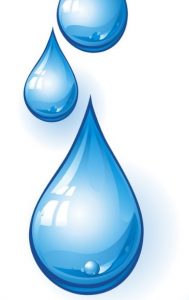 If water leaks through the chimney, you should be worried. Repairing that type of water damage can be difficult and costly. More importantly, though, is that it may create a health risk. There are several reasons you may notice water leaking into the home from the chimney, either towards the top, through the fireplace, or in the walls.
If water leaks through the chimney, you should be worried. Repairing that type of water damage can be difficult and costly. More importantly, though, is that it may create a health risk. There are several reasons you may notice water leaking into the home from the chimney, either towards the top, through the fireplace, or in the walls.
If you suspect a chimney leak, there may be a few different reasons for it. In order to hone in on the problem, call a professional chimney sweep for a diagnosis. The solution may be to make major renovations to the chimney or to repair a small part, but in any case, it’s worth your health and safety.
#1: Condensation
Chimneys develop condensation as water vapor is created as a byproduct of the combustion process. Without a chimney liner, this condensation can build on the walls of the chimney and leak into your home. Not only does this damage the home; it’s extremely dangerous.
Without a chimney liner in place, you are at a much higher risk of a potential chimney fire. This installation can save your life, reducing the flammability of your chimney and home.
#2: Damage to the Brick and Mortar
The original brick and mortar material can develop leaks over time. Some people find cracks in the original chimney to be charming or to add character, but this is a major problem when it comes to potential moisture damage and creosote buildup. Waterproofing the chimney is a job for a professional chimney sweep.
#3: Leaky Chimney Flashing
Chimney flashing is what seals the chimney to the rooftop. The chimney flashing is angled to stop water from dripping into the home, but it can wear out over time. Eventually, chimney flashing needs replacement, and it can be a complicated job.
Water-stained ceilings, mold and mildew, and other signs of water leakage often indicate the flashing is in need of repair or replacement. In order to repair the problem, you’ll need the tools and materials to measure sheet metal and roof angles, bend the metal, and attach it to the roofing. If you don’t feel comfortable with the work, especially if you have a slate or tile roof, be sure to call a professional roofer or chimney sweep.
#4: No Top
Finally, an easy reason for moisture coming into the chimney is that there’s nothing stopping it from pouring right in as it rains. An open chimney top may have been the norm a century ago, but that doesn’t mean it’s safe. Cover your chimney with the help of a certified chimney sweep.
A chimney cap helps you in many ways. It blocks the rain, which reduces moisture damage, and it keeps animals and small debris out. This is important, because when debris gets stuck at the bottom of the chimney, it may allow carbon monoxide to leak into the home.
If you already have a chimney crown, but rain is falling into the chimney, it could have a crack. Call in a chimney sweep to check out the situation.
For chimney repair in St. Paul, MN, call 2nd Generation Chimneys, Inc.
